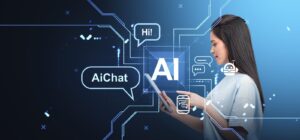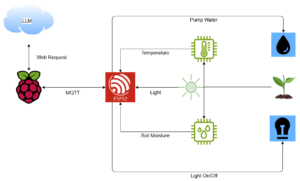The Evolving Impact of AI in Biomedical Engineering Education

The Growing Influence of AI in Biomedical Engineering Education
Artificial Intelligence (AI) is transforming many industries, and biomedical engineering is no exception. As technological advancements happen at a rapid pace, educational institutions are beginning to incorporate AI into their biomedical engineering curricula. This integration is preparing future engineers to lead in medical innovation.
Understanding Biomedical Engineering
Biomedical engineering combines engineering principles with medical and biological sciences to create solutions for healthcare. This field encompasses various areas, including:
- Medical device development
- Bioinformatics
- Imaging technologies
- Tissue engineering
- Rehabilitation engineering
The overarching goal is to improve patient care and healthcare systems through innovation and technology.
The Role of AI in Biomedical Engineering Education
AI is being integrated into biomedical engineering education in several ways. Educational institutions are adopting AI-based tools and platforms to enhance learning experiences. Here are some key areas affected:
Curriculum Development
Many universities are reshaping their curricula to include AI concepts and applications. Students learn about machine learning algorithms, data analysis, and predictive modeling. This exposure helps them understand how AI can be applied to solve complex biomedical problems.
Hands-On Learning
Practical experience is crucial in engineering education. Advanced AI tools provide students opportunities to engage with real-world data and create simulations. For instance, they can:
- Analyze clinical data for research projects.
- Utilize AI simulations to design medical devices.
- Develop software for imaging and diagnostic purposes.
This hands-on learning reinforces theoretical knowledge by providing students with practical applications.
Interdisciplinary Learning
AI is inherently interdisciplinary, bridging gaps between various fields. In biomedical engineering, students can learn how AI intersects with biology, data science, and healthcare. Collaborative projects often bring together students from different backgrounds, fostering a comprehensive learning environment.
Benefits of Integrating AI into Education
The integration of AI in biomedical engineering education offers numerous advantages:
Enhanced Learning Outcomes: AI-powered tools can adapt to each student’s pace and learning style, ensuring a more personalized education experience.
Research Opportunities: Students can engage in innovative research by using AI for data interpretation and analysis in biomedical studies.
- Skills Development: Graduates equipped with AI knowledge are more competitive in the job market as healthcare becomes increasingly reliant on technology.
Challenges in Implementing AI in Education
While the potential benefits are significant, there are challenges as well:
Resource Availability: Not all institutions have the necessary resources or infrastructure to implement AI technologies effectively.
Training Educators: Faculty members must be trained in AI concepts to teach students effectively, which may require additional time and resources.
- Ethical Considerations: With AI’s role in healthcare, students must also be educated about ethical issues, data privacy, and the implications of technology in patient care.
Looking Ahead
As AI continues to evolve, its impact on biomedical engineering education will likely expand. It will ensure that future engineers are equipped to navigate the complex interplay of technology and healthcare. With ongoing collaboration between educational institutions, industry leaders, and technology developers, students will be well-prepared to face the challenges and opportunities that lie ahead in the biomedical field.
In summary, by integrating AI into biomedical engineering education, institutions are poised to foster a new generation of engineers capable of harnessing advanced technology for the benefit of medical science. The journey toward an AI-augmented future in biomedical engineering is underway, making education a pivotal part of this transformation.






